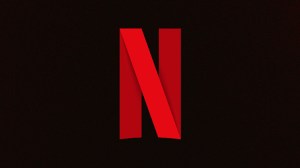Let’s start with a ringing endorsement: You Should Have Left is not as bad as Tommy Wiseau’s The Room. It is also not as entertaining. More than once in the film’s short running time I was reminded of the “best worst movie” as awkward and painful scenes played out. That’s not to say that the film isn’t slightly self-aware, since some of its more outlandish moments seem to have a hint of how stiff and excruciating they are, but they continue uncut and add nothing to the movie other than more minutes to its run time. Just like The Room, there are places of familiarity in You Should Have Left, scenes that feel like poor facsimiles of scenes from other movies that exist because they must. Unlike that “so-bad-it’s-good” movie, there’s not much to redeem with this one.
Videos by ComicBook.com
Kevin Bacon stars as Theo Conroy in the film, an older guy with a much younger wife and a shady past that has given him a reputation. Without spoiling too much about it, there’s frankly a lot of baggage to Bacon’s character. His qualities and backstory read like a checklist of “things people hate about people in Hollywood.” None of this actually adds anything to the film and ends up feeling like a tone-deaf commodification of traits that inspire public derision. You’ve got to hand it to Bacon, though; despite being a smoothie of unlikely characteristics, he’s still charming as ever, even with a wooden script.
An attempt was made to tell a story with a moral here, but writer/director David Koepp has seemingly lost touch with narrative functions over the years. Bacon’s character is assumed to be a bastard from the start and any attempts by the film to paint him on the good or worse side of that coin are fruitless. The set-ups and payoffs don’t recontextualize the movie’s events or its characters in a rewarding way, either, and frankly feel like hollow add-ons to a movie that didn’t know what it wanted to be from the start.
You Should Have Left also wears its influences on its sleeve, and not in a way that pays homage or acknowledges its roots. The film is steeped in ideas that have been done better elsewhere, suggesting that, despite its clear fascination in trippy family thrillers, they don’t understand how those worked. Sharp and sudden string music accompanies certain sequences similar to A24 movies like Hereditary or The Witch, but contribute nothing to the tension of the scene at hand or the overall feel of the movie. The third act itself is also reminiscent of other media like the novel House of Leaves and the 2009 horror-thriller Triangle, but these fan favorites handle their similarities better than this film can even consider attempting.
There are small glimmers of bright spots in You Should Have Left, including actress Amanda Seyfried as Bacon’s wife Susanna. Despite getting very little to do and playing a character that says more about its screenwriter than it does her, Seyfried manages to carry the screen every time she appears. There’s also child actress Avery Essex as their daughter, who is able to hold her own against Bacon on screen and brings her best scared face to scenes that aren’t actually scary.
That’s the film’s ultimate fault; besides having moments of attempted levity that are embarrassing and having irredeemable characters, it’s just flat-out boring. Visually, there’s almost nothing of note in the first hour, as bland wide shots guide us through a boring beige world. The third act feels like it was shot by a different cinematographer than the rest, by comparison, but this jolt of energy can’t save the entire film, either, because even at its best attempt to startle, it’s not frightening in the slightest.
An unfortunate part of the movie business is when film titles set themselves up to get dunked on if they end up being terrible. You can use your imagination for what one of those might sound like for You Should Have Left, and what you end up with will probably be more clever than the movie itself.
Rating: 1 out of 5
You Should Have Left is now available to rent on VOD platforms.








